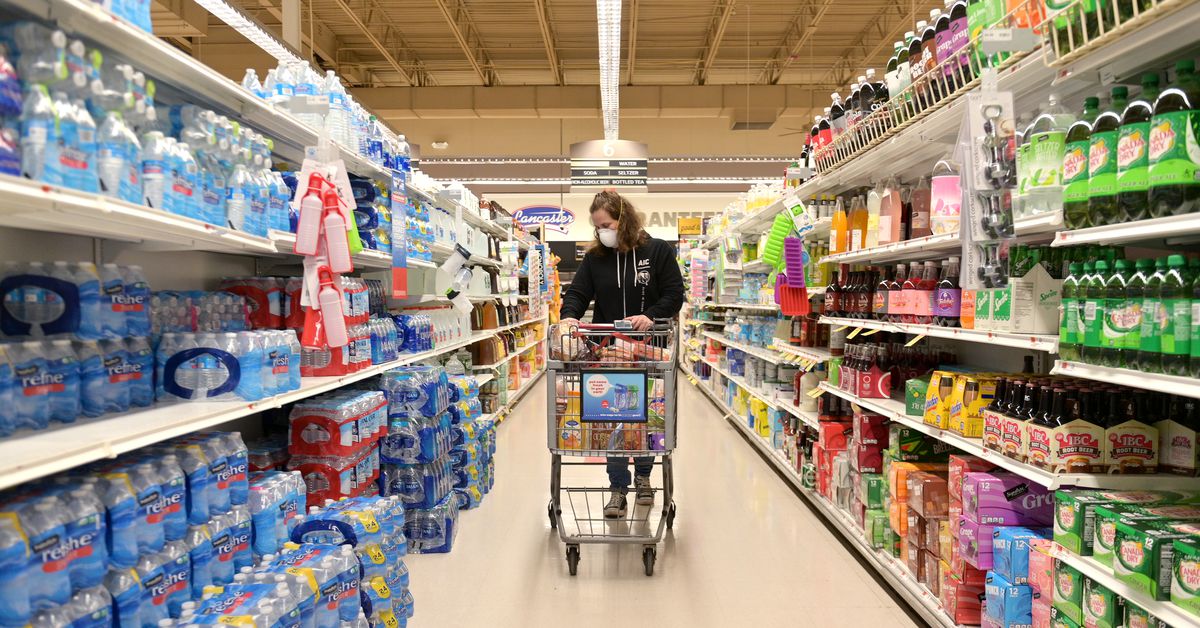Instacart’s reported plan to automate its workforce seems a lot like bluster
Source: The Verge added 01st Jun 2021Instacart has big plans to automate parts of its grocery delivery business, reports Bloomberg, but the company’s schemes look as much like bluster as ambition.
Bloomberg details a plan for the gig-work grocery-delivery network to build “automated fulfillment centers around the US, where hundreds of robots would fetch boxes of cereal and cans of soup while humans gather produce and deli products.” Some centers would be built next to grocery stores while others would be “standalone” operations. Instacart would partner with a supermarket chain to handle inventory, contract out the automation side of things to a robotics firm, and take care of processing orders and deliveries itself. If it works, the system would automate out huge portions of the company’s freelance workforce.
It doesn’t seem like Instacart is making much progress, though. Bloomberg notes that although the company has been working on these plans for more than a year, it “has yet to sign up a single supermarket chain” and has fallen behind schedule in developing its fulfillment centers. Meanwhile, another report from the Financial Times in February suggested the company planned to open as many as 50 centers “in about a year.” The clock is definitely ticking on that.
There are certainly real reasons Instacart would want to automate. The company’s current business model relies on paying hundreds of thousands of gig workers to do customers’ shopping for them. This approach has found plenty of customers as it’s convenient and allows supermarkets to offer online shopping and delivery without creating their own service.
But this setup has problems, too. As Bloomberg notes, shopping with Instacart is expensive. The company’s delivery fees, tips, and markups add 25 percent to order costs, according to data from consulting firm MWPVL International Inc. Another source of tension is that supermarkets don’t want Instacart stealing their business in the long run. They’ve been happy to partner with the company when they had no other way to offer online shopping and delivery, but that’s changing, says Bloomberg, with new options for delivery offered by startups and existing food delivery businesses expanding their reach.
Both of these factors put pressure on Instacart, and that’s particularly bad at a time when the firm wants to go public, either through a direct listing or an IPO (originally rumored for early this year and now reportedly pushed back to the end of 2021). Making big plans to automate its business seems like a way of allaying some of these pressures — giving investors hope that the company can lower costs and find a new way to work with supermarkets.
Certainly, automating grocery shopping is not out of the question in the long term. Grocery firm Ocado, for example, has huge operations that use both robots and humans to pack orders and is partnering with chains in the US that want to leverage that tech. But using robots in this way is still in its infancy: it requires huge investment and patience to work out the kinks and can’t just be tacked onto a business.
Meanwhile, it’s not clear how sustainable Instacart’s current business really is. As a private firm, we don’t know how much money it’s making or losing, but The Information reported that it only made its first profit in early 2020 thanks to booming pandemic sales. Meanwhile, the company has been repeatedly accused of exploiting its workforce in an unsustainable manner, particularly during the pandemic.
Overall, the situation feels similar to that of Uber, where the company repeatedly promised that its loss-making, gig economy business would become sustainable when it developed self-driving cars to replace all those pesky humans. And we all know how that ended: the taxi firm sold its self-driving team in December last year.
brands: Built Direct First It New other Replace Team media: 'The Verge' keywords: Uber
Related posts
Notice: Undefined variable: all_related in /var/www/vhosts/rondea.com/httpdocs/wp-content/themes/rondea-2-0/single-article.php on line 88
Notice: Undefined variable: all_related in /var/www/vhosts/rondea.com/httpdocs/wp-content/themes/rondea-2-0/single-article.php on line 88
Related Products
Notice: Undefined variable: all_related in /var/www/vhosts/rondea.com/httpdocs/wp-content/themes/rondea-2-0/single-article.php on line 91
Warning: Invalid argument supplied for foreach() in /var/www/vhosts/rondea.com/httpdocs/wp-content/themes/rondea-2-0/single-article.php on line 91
